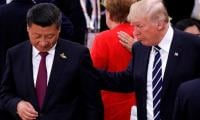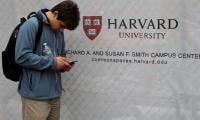family claim that Deutsche tried to cover up the fraud by engineering a default on the loan agreement using dubious valuations and charging a default rate of interest 3 times the agreed rate. The Deutsche will argue that the property portfolio fell almost by half in value in 2008 and 2010 giving them the right to terminate the loan.
The expert valuations obtained by the Khans assert the overall security value did not fall beneath the required levels. The Khan’s case further alleges the bank behaved badly by breaching their confidence and spreading rumours in the market that the loan was not performing which further prejudiced the perception of value in the market negatively as ‘distressed assets’. Deutsche are also accused of mis-selling the investment products and prematurely liquidating them. In a surprise move shortly before the trial, the Deutsche Bank dropped its claim that five family members, including Senator Waqar and both his parents, are jointly and severally liable to repay a sum in the region of £60 million. The Bank maintains a claim against Senator Gulzar Khan on a guarantee.
This appears to be a landmark case where the attitude of banks and their commitments to their clients is being examined in the wake of the financial crisis. Banks have been accused of abandoning the interest of their clients in place of their corporate profits.
The Khan family’s solicitor, Richard Slade, told this scribe: “It is surprising to put it mildly that having sued significant private clients of the bank and maintained in the proceedings for nearly two years that they are liable for a sum approaching £60 million, the Bank has decided to abandon that claim, a few days before trial.”
It is interesting that this high-profile trial involves a Pakistani origin banker named Nasim Ahmad, who is now Regional Head for Global South Asia, for the Middle East and Pakistan in Deutsche’s Private Wealth Management Division, and acted as the Khan family’s veteran relationship manager. It is believed that Nasim Ahmad approached the Khan family to open account with the Deutsche bank and offered them heavy incentives. It is claimed that when Mr Ahmad was involved in Deutsche’s attempts to win the business, he was still employed by UBS. It is also alleged that Mr Ahmad, who is believed to be originally from Lahore, was involved in obtaining the family’s signature to a supplemental document after the event.
The same banker, in his previous role at UBS, managed the account of the Nigerian convicted money-launderer and impeached state governor, Diepreye Alamieyeseigha, when the latter was depositing millions of dollars at a time when he declared an annual income of £6,000. The relationship between Alamieyeseigha and UBS featured a book called A Swamp full of Dollars written by the Financial Times journalist Michael Peel. The author claimed in his book that Mr Ahmad encouraged the Nigerian to deposit more money as “a nest egg”.
Richard Slade told The News that his client looked forward to “put under the microscope in court” the bank’s dealing with him.
The Deutsche bank has recently been in trouble as German prosecutors and police, in December last year, raided the Bank’s Frankfurt headquarters, arresting five employees, in a tax probe involving the sale of carbon-emission certificates. In the same month, the bank was convicted by a court in Milan of overseeing the fraudulent sale of derivatives to the city of Milan and the offices of the Bank in Germany were raided a second time as part of an investigation into the possibility that executives had given false testimony in court proceedings in its long-running court battle with media mogul Leo Kirch. In a separate case, also in December, the High Court of Singapore found that Deutsche and a “self-interested relationship manager” had breached the bank’s duty of care to its client and awarded damages against the bank of $49 million.
When approached for a comment, the lawyers acting for the bank said: “We do not comment on client matters that are subject to ongoing legal proceedings”, but a spokesman at the Deutsche Bank told The News: “This is a straightforward case of borrowers taking out a loan and failing to meet their obligations.”
PPP leader says people of country still did not know mystery behind 190 million pounds transferred from UK to Pakistan
“If they are not in the court within half an hour, I will decide the case.” says court
Mengal says it was ironic that many people thought Balochistan was limited to Gwadar
PTI leaders are booked in two cases registered in Ramna police station
Circular has been issued in context of recent terrorist incidents
Pakistani jirga, comprising 36 members in total including tribal elders and officials, placed three key demands...







